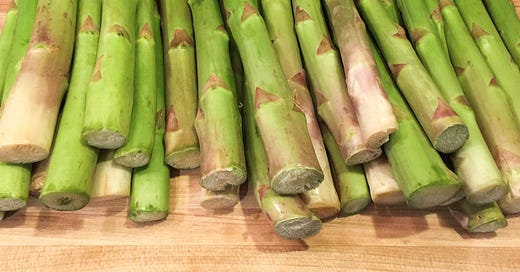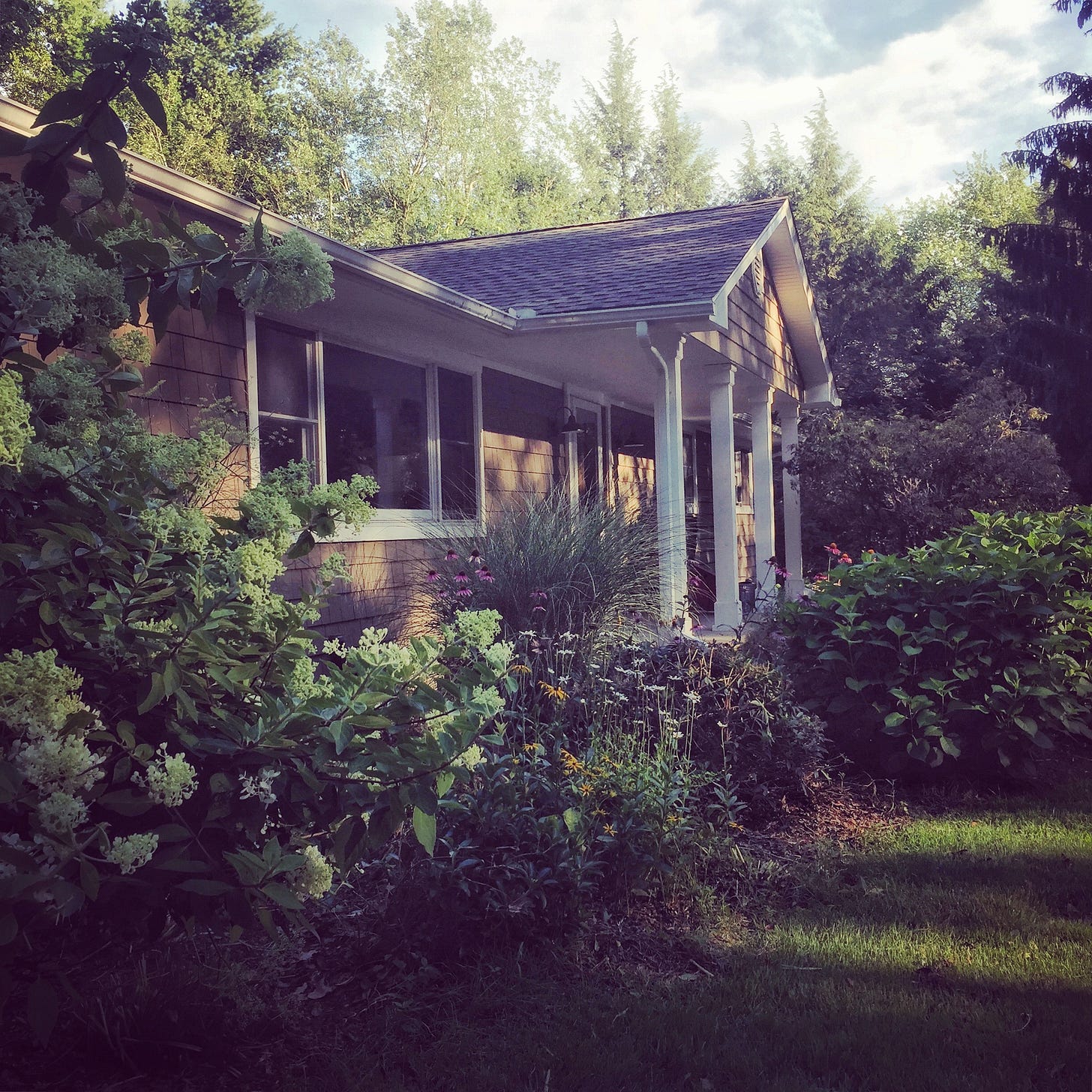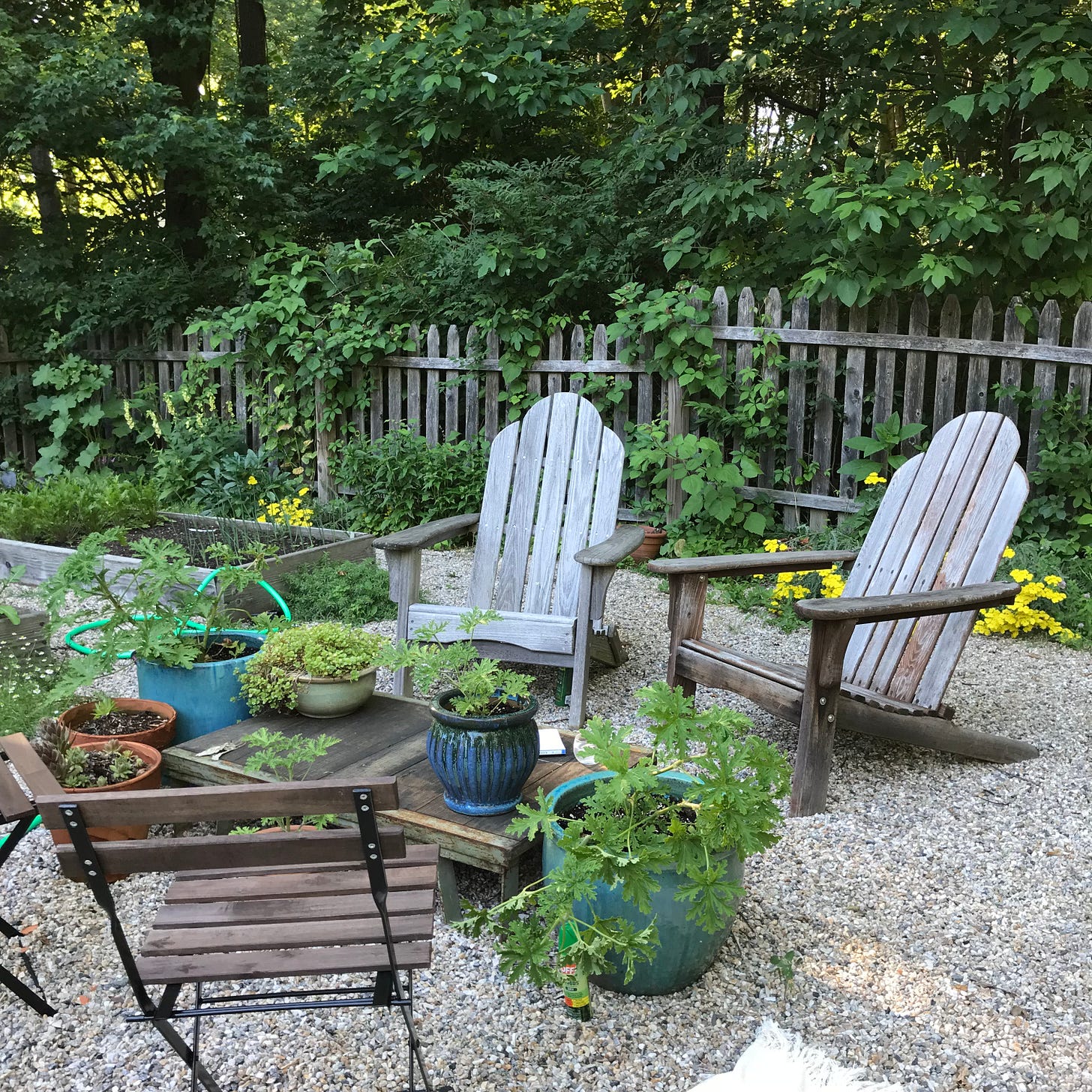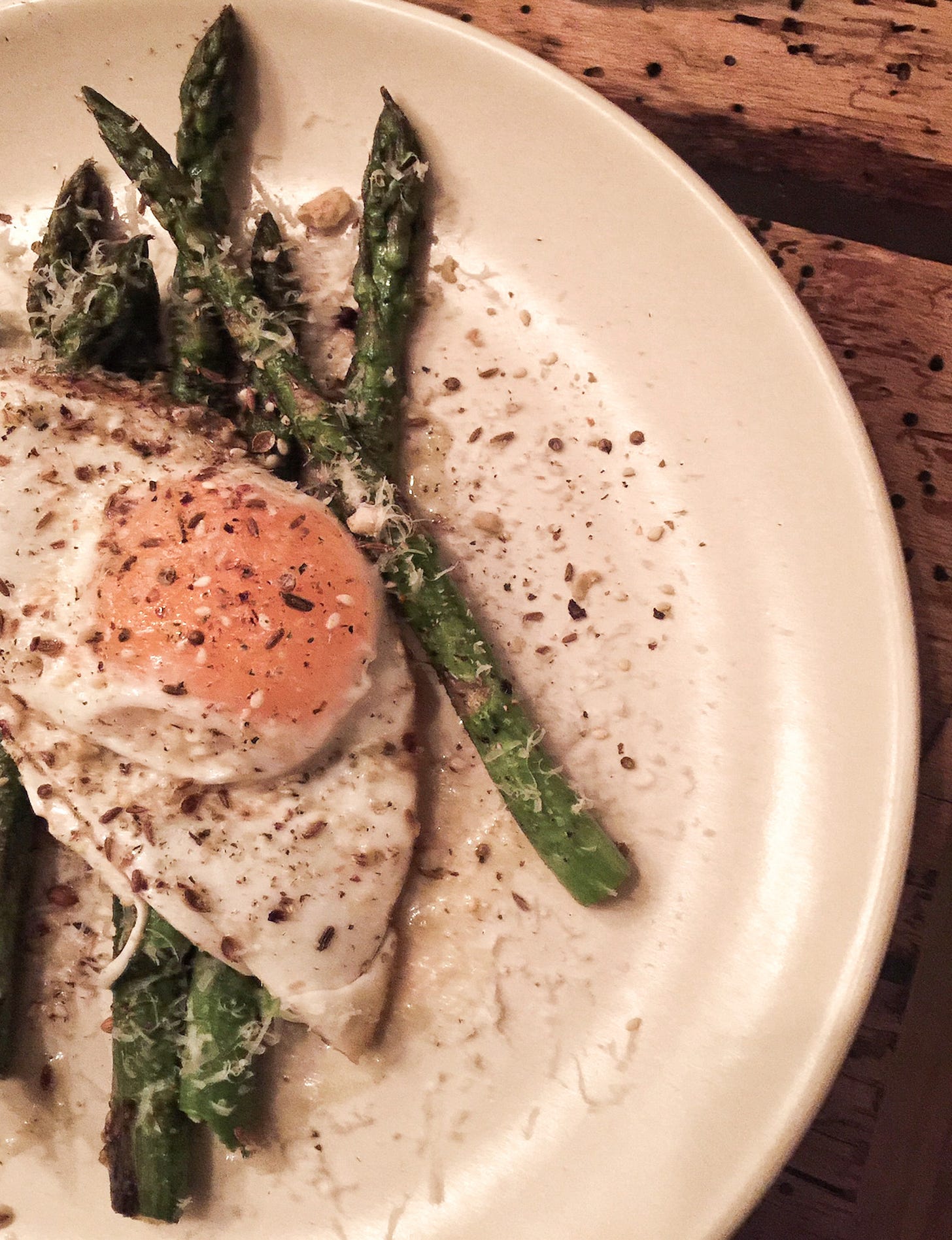I measure the accretion of time by the age of the baby we never had, the number of older people we’ve lost, the cancer scares, the boxes of inherited photos stacked up in our closet, the flutter I get in my heart when I look across the table at her.
Nineteen years; long enough for us to have a child in college.
Nineteen years; I still wake before she does.
I take stock of her: the way her hair, once prematurely salt-and-pepper, has now gone white in spots, and how quiet her dreams are.
- from Motherland
In April, we will have been living in our home for nineteen years. When I wrote the words from Motherland, above, we’d been here for fifteen. We never expected it, to be here for so long: nineteen is the age of a child in college, the age I was when I was getting ready to leave for a semester in England, the age my mother was when she was performing on television, the age my father was when he earned his wings and flew missions for the Navy off the USS Enterprise in the Pacific during the Second World War.
Time has flown by in a way that undoes me; Susan and I were together for four years when we moved in. I was forty, and one of the first things I did when we got here was broach with my doctor the idea of having a baby. I was forty when I learned that it would never happen without (very) significant medical intervention because I was already in active menopause; my mother had gone through it at thirty-eight, and neglected to tell me because she never thought I’d need to know.
What—? she said, when I brought it up—you’re gonna have a baby? You’ll wind up with a chest like your grandmother’s.
(Upshot: No medication, no chemicals, no IVF, no baby. And I still wound up with a chest like my grandmother’s.)
I’ve always felt like I had all the time in the world to make decisions, to consider my options, to save up, to see how things unfolded, to take risks, to be where I wanted to be and do what I wanted to do. But I’ve learned in the last few years: none of us does. None of us has all the time in the world. My grandfather’s favorite expression: mensch tracht und gott lacht. Man plans and God laughs. When my stepfather died after a cerebral hemorrhage in 1997, I remember looking at him shortly after he passed and thinking And this is what it is? Just like that—we’re here, and then we’re gone. Why do we wait. We put off living; we put off life. Instead, we plan for what may never happen, and we feel like failures when or if it doesn’t.
My grandfather’s favorite expression: mensch tracht und gott lacht. Man plans and God laughs.
The day after we moved in to our home, Susan went to work full time for Random House as a book designer; I was working from home on my first book, a cookbook. At the end of our first week here, we had time to walk around the entirety of our new property together, and to think about what we’d plant, what we’d change, walls we’d knock down, the 1971 avocado green bathroom we’d rip out, the yellow kitchen countertops we’d replace with granite. Our friends came up from the city and one of them walked around with an electric screwdriver, removing the swinging saloon doors that separated the dining area from the kitchen, changing out light fixtures, tightening door knobs. A few weeks later, we hired a carpenter to build a wall of bookshelves in the living room to house some of our thousands of books. Testing the recipes for the cookbook I was writing, I killed the house’s original 1971 pristine electric coil Magic Chef stove and replaced it with a Viking six-burner powered by propane. When it got warmer, we started to think about what to do to the front yard: it was all lawn, and rolled straight up to the house. We spent many hours just sitting on the front porch and staring at where we suddenly found ourselves.
The first four years we lived in the house were spent constantly thinking about being someplace else.
Months later, I also went back to work in Manhattan, putting all of our renovation plans on hold for another time; every drop of work we wanted to put into the house had to be squeezed into our busy weekends. Our monthly commutation bill was almost a thousand dollars. We ran out of money; we tried to do everything ourselves. By year two, we were exhausted. We were frustrated. We fought. We wept. Unmoored and untethered, I felt like a tumbleweed in a windstorm.
Ultimately, we had no intention of staying. We didn’t love suburbia. The taxes were insane. The commute into Manhattan was almost five and a half hours, round trip. We would leave in the dark, and come home in the dark. We fell in love with Vermont, where we’d been going every autumn since 2002, right after my father died. We considered moving to Middlebury, where the cost of living was far lower. But neither of us was an academic or a cheesemaker nor were we independently wealthy, so: no Middlebury.
In Motherland, I wrote that Gardening is a contract with hope; those words were written during asparagus season, when I inevitably think about how the entire practice of planting vegetables is an exercise in promise and potential.
The first four years we lived in the house were spent constantly thinking about being someplace else. Susan’s mother came to visit and wanted to know why we hadn’t planted a vegetable garden, so we planted a vegetable garden. The usual: lettuces, kale, chard, tomatoes. A neighbor came over with a handful of beans — the great-grand beans of the ones carried over by her grandfather from Italy a century earlier; she saved some every year for the following year’s garden — and we planted those too. What I really wanted, though, was to plant asparagus.
We may not even be here when it comes up, Susan said.
Truth: asparagus crowns are complicated to plant, involving the digging of deep trenches, and vast amounts of patience. Once planted, asparagus only begins to emerge, and only sparsely, in year two. In Motherland, I wrote that Gardening is a contract with hope; those words were written during asparagus season, when I inevitably think about how the entire practice of planting vegetables (or flowers) is an exercise in promise and potential, and the assumption that one will still be around when it comes time to harvest the first batch. But — and this is key — if you’ve ever had freshly-cut asparagus, you know: it is also very much worth the wait.
If only we drop the anchor and look around with some modicum of grace and gratitude instead of comparison and competition and want.
A few more years passed; one late afternoon we were walking the dog and noticed narrow asparagus spears poking out of our neighbor’s garden. She had told us to help ourselves, so we did, snapping a few of them and carrying them home, putting them in a pan with a little water, cooking them until they were just tender, and sprinkling them with a little bit of sea salt. They were unlike any other asparagus I’d eaten before or since.
So here we are: nineteen years later. The bathroom is still avocado green; the kitchen countertops are still yellow. We have extraordinary neighbors. The children who lived next door are grown and partnered; the children who lived across the street are parents themselves. If only we had planted crowns when we first talked about it — around 2005 — we’d have had our own fresh asparagus now for sixteen springs. If only: if only we recognize where we are, and devote ourselves to being in that place until we’re not. If only we drop the anchor and look around with some modicum of grace and gratitude instead of comparison and competition and want. If only we realize that Ram Dass was right: The game is to be where you are. Be it honestly and as consciously as you know how. Your entire life is a curriculum.
If only we would commit to the asparagus, plant it, and let it feed us, year after year.
Recipe
Pan-Roasted Asparagus with a Fried Egg
I first made this dish on a spring night when Susan was in the city and I was alone in the kitchen with half a bunch of fat, local asparagus from a nearby farmer’s market, and a carton of local eggs. The result was delectable and comforting; the dish is elevated to stunning if you use the freshest asparagus and eggs you can find (I’ve used duck eggs on occasion, when I can get them). Swap out the Parmigiana for a young Pecorino if you can find it.
Serves 1
1/3 pound of fresh asparagus, woody ends snapped off and the bottom third gently peeled
2 tablespoons extra virgin olive oil, divided
1 large chicken or duck egg
Parmigiana Reggiano or young Pecorino
Maldon, or other coarse, flakey salt
Freshly ground black pepper
1. Preheat your oven to 400 degrees F. Place the asparagus in an oven proof pan and drizzle with 1 tablespoon of oil. Roast in the oven until knife-tender for approximately 20 minutes depending on the thickness of the asparagus, shaking the pan frequently.
2. In a small, nonstick omelet pan, gently warm 1 tablespoon of oil over medium-high heat. When the oil begins to shimmer, crack the egg directly into the pan and lower the heat to medium. Fry the egg until the whites are firm and the yolk is still a bit runny, about 5 minutes, tilting the pan and spooning some of the hot oil directly over the yolk as it cooks.
3. Top the asparagus with the fried egg, over which you’ll grate the Parmigiana or Pecorino (as much or as little as you’d like). Sprinkle with salt and pepper, and eat straight out of the pan if you’re alone, or a heathen, like me.
Variations
Roast the asparagus as above. Instead of an egg, dollop with a hefty spoonful of fresh sheep ricotta, the zest of half a lemon, a pinch of salt, and freshly cracked black pepper.
Roast the asparagus as above. While the egg is cooking, drizzle it with a teaspoon of good red wine vinegar and spoon it over the yolk with the sizzling oil.









“The game is to be where you are. Be it honestly and as consciously as you know how. Your entire life is a curriculum.” Indeed it is. At 50, I’m finally starting to get that in a real way. Thank you, as always, for your thoughts and your words.
When words nourish a morning, give pause to the day. Thank you.